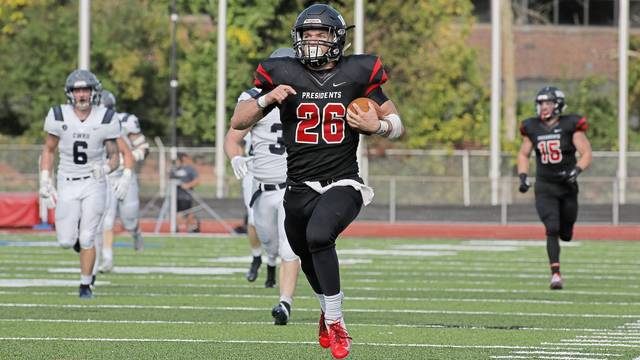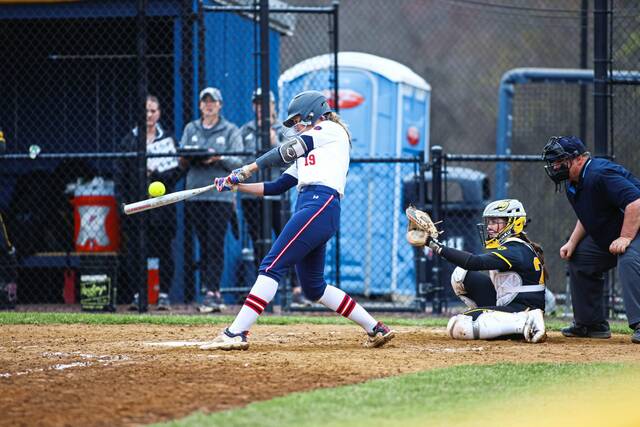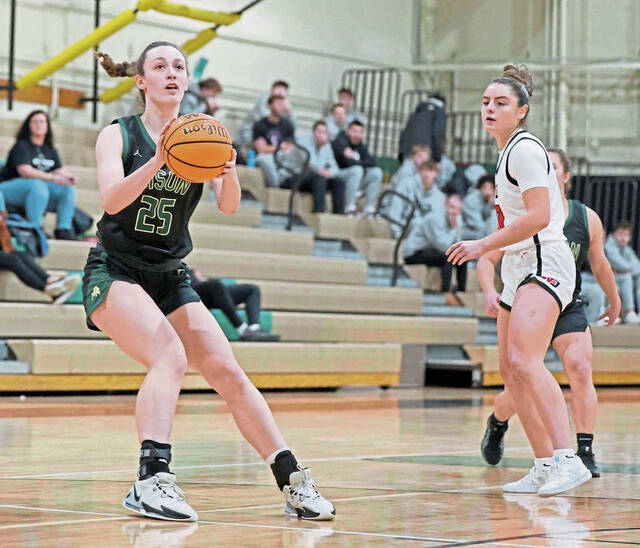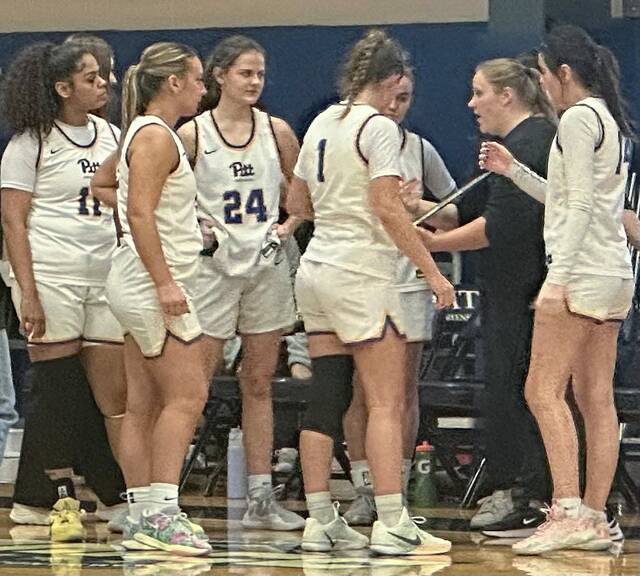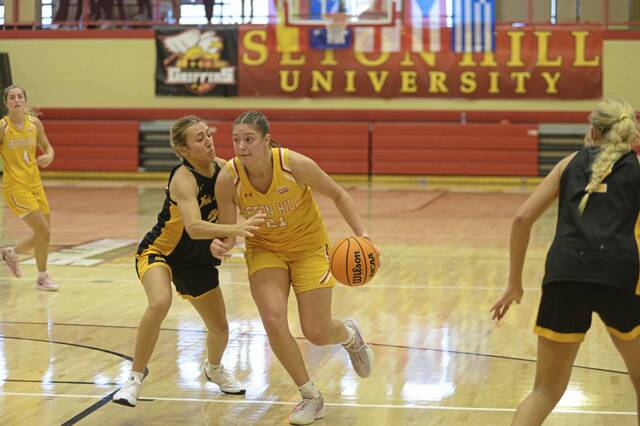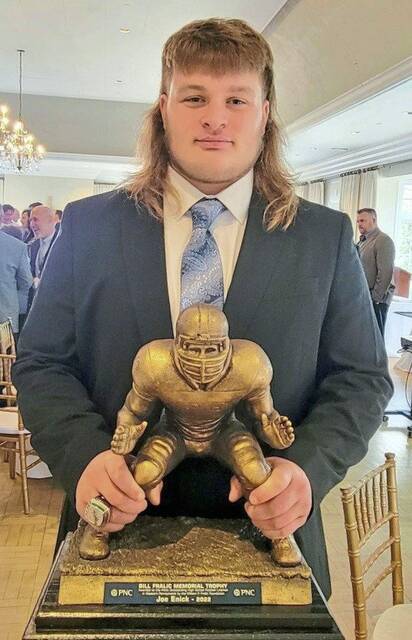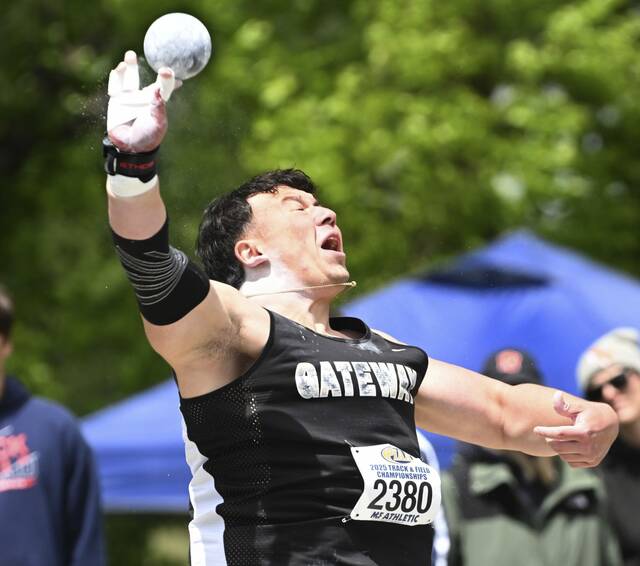Longtime Geneva coach Geno DeMarco tried spreading out his offense and running as many plays as quickly as possible, often throwing.
Not to his liking.
When Andrew DiDonato was hired to resurrect Grove City’s program three years ago, he easily could have used a passing system. Wide-open offenses had become all the rage, and DiDonato was the product of passing schemes at South Fayette and GCC.
Instead, he chose to do things the old-fashioned way.
Though football has become more pass-happy at all levels, in the Presidents’ Athletic Conference, teams still place a premium on running. Consider:
• Until last season, per-team rushing averages in the PAC had increased for six consecutive seasons.
• The PAC has produced 18 1,000-yard rushers — including 2,000-plus for Carnegie Mellon’s Sam Benger in 2015 — and 14 more backs who had at least 700 yards over the past four seasons.
• Last season, five of the top six teams in the PAC standings — W&J, Case Western Reserve, Grove City, Carnegie Mellon and Bethany — finished among the conference’s top six in rushing offense
“It (running) is crucial,” said Grove City senior Wesley Schools, who rushed for 1,741 yards last season. “It’s the essence of football. Who wants it more? And that’s where it shows up is running the ball.”
At W&J, Mike Sirianni has a reputation as a coach who likes to put the ball in the air. But last season, Presidents running backs Jordan West (Washington) and E.J. Thompson combined for nearly 2,000 yards on the ground and 21 touchdowns.
“We 100 percent want to be balanced,” Sirianni said. “I think we’ve been known as a passing team, but I don’t know if that’s fair. We’ve always been in the top two or three rushing also.”
While the ground game has brought success for teams such as Grove City and W&J, Geneva has been on the other side. Using a triple-option, the Golden Tornadoes have won only two PAC games in each of the past three seasons.
But this fall, DeMarco expects a breakthrough after having the past three seasons to stock up on recruits more suited to running the triple-option, a luxury he didn’t have when he abruptly switched philosophies.
“We were going 100 mph and running 80 to 83 plays a game,” said DeMarco, who is in his 27th season as Geneva’s coach. “I just felt we were going to go back and were going to do what’s best for the kind of kids we get: kids that are disciplined, kids that understand process. We’re going to go back to being a physical football team.”
For Westminster coach Scott Benzel, the frequency with which a team runs isn’t necessarily as important as how it runs. He calls them “attitude runs.”
“If it’s third-and-2, I want to get behind center some and push you off the ball,” he said.
Benzel praised DiDonato’s successful use of the running game. The fourth-year coach has brought the Wolverines from the throes of a 33-game losing streak to the program’s first ECAC Bowl victory in just three seasons.
DiDonato’s philosophy — run to set up the pass and keep his defense off the field — might be considered antiquated by some. But running the ball effectively, he said, forces more defenders into the box and creates favorable looks for the Wolverines’ big, athletic receivers.
And the young coach with the 1970s mentality believes running is the future of football, not the past.
“We’re going back to old school,” he said. “We’re going to run the ball and let that set up our matchups to throw. I think everything comes full circle, and we wanted to be at the front end of going back to old-school type mentality.”


